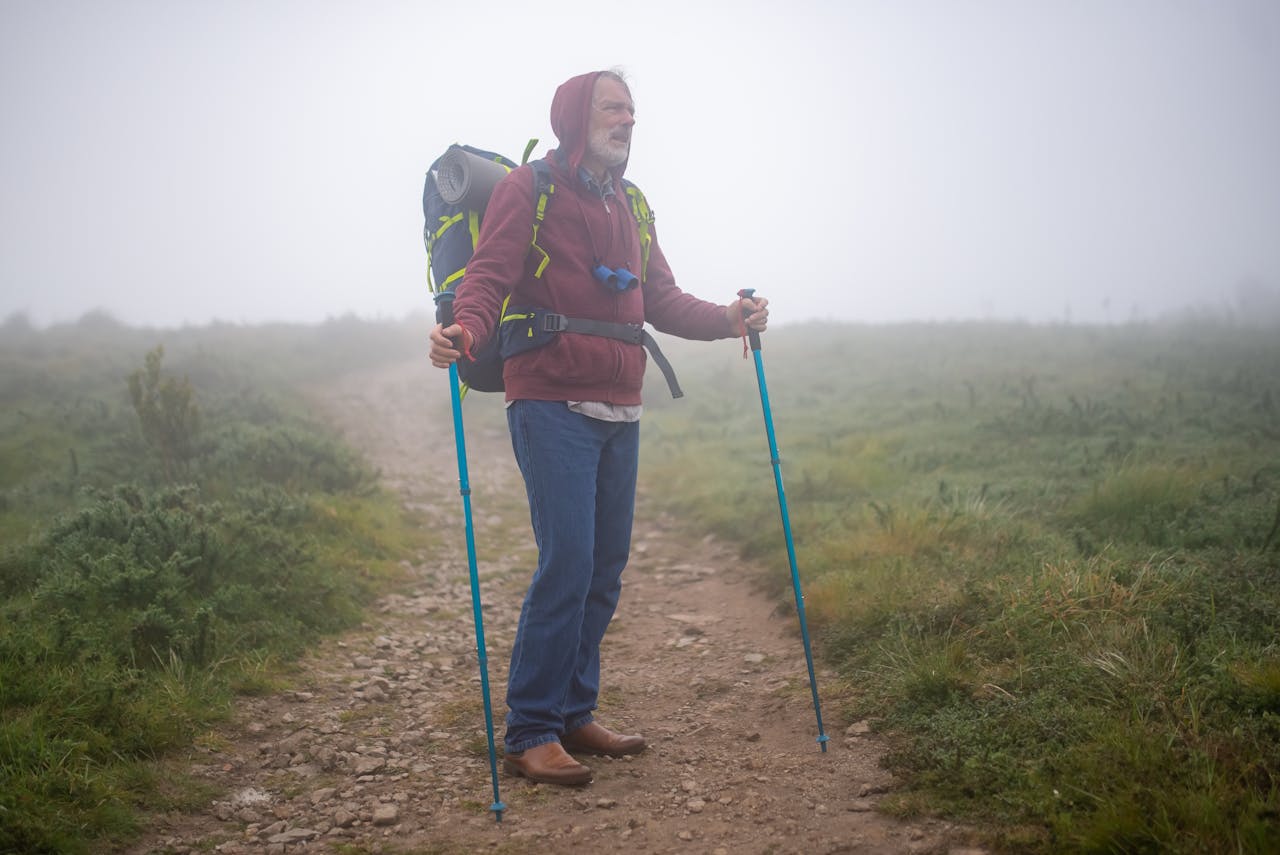High Hopes For Retirement
After working for most of your life, you're finally ready to retire. Suddenly, the world is full of possibilities. You have time to focus on your hobbies and take things slow. Maybe you dreamed of traveling the world. You now have the freedom to do anything.
This is your moment... or is it?

The Hard Reality
Unfortunately, aging comes with several potential problems. Even though you have high hopes for retirement, you might be faced with health issues like heart disease, mobility problems, dementia, cancer, or mental illness. Even worse?
Retirement itself may be to blame.
What Is The "Retirement Curse"?
According to the findings of economics professor Dhaval Dave from Bentley University, retirement can lead to some negative health consequences. This is called the "retirement curse."
Retirement Can Hurt Your Mental And Physical Health
According to studies, about five years following the decision to retire, the average American's mental health experienced a decline of around 6 to 9%. But that's not all.
 Dmitry Demidovich, Shutterstock
Dmitry Demidovich, Shutterstock
The Best Years Of My Life?
After retirement, studies also revealed that the chance of developing a health condition increased by 5 to 6%. As well, basic day-to-day activities also became more difficult—an increase of 5 to 16%.
Retirement Isn't The Nail In The Coffin
You can work to avoid the "retirement curse" by focusing on the way you transition from your working life into retirement.
Keep Your Routines On Track
You've probably spent most of your life following a similar routine—one that revolves around working five days a week, eight hours a day. Without a healthy routine in your life, your health might suffer. Cultivating new habits is essential.
Loneliness Is Dangerous
Many retirees find themselves feeling increasingly lonely following retirement. Perhaps their workplace was an important social circle in their lives that they no longer have access to.
Don't Lose Touch With People
It's easy for retirement to lead to social isolation and therefore feelings of loneliness. But this can be terrible for one's mental health. Healthy social interactions are important for maintaining longevity.
How To Avoid The Curse
Financially planning for retirement is what people focus on the most, but few make plans for upkeeping their social lives and physical health.
Take It Slow
Suddenly quitting work will likely be a lifestyle shock for retirees. Instead, it's recommended that you slowly stop working, cutting down hours gradually. With your new free time, you can cultivate hobbies and seek out activities in your community.
Your Eating Habits Will Change Dramatically
The way you organize your meals as an employee working a 9 to 5 will probably be different from the way you eat as a retiree. Maybe you're waking up at a later hour and have to rearrange your meal times. Gradually adjusting your eating habits will help keep your physical health on track.
Stay As Social As Possible
Whenever you can, maintain your relationships. Making time for your spouse and family are important, but retirement is also a great opportunity to become even closer with friends you haven't been able to spend much time with in the past.
Plan Your Retirement Alongside your Partner
Retirement is guaranteed to affect your romantic relationship. All of a sudden, you and your partner will be spending a lot more time together. It's not unheard of that some couples end up fighting more after retirement.
Set New Boundaries
As retirement approaches, make sure you communicate your needs with your partner. Even though you may both have more time to spend together, you may want to set some boundaries.
Share Your Goals With One Another
Perhaps you need time every week to be alone, or focus on yourself. Perhaps you'll have brand new goals for this next chapter of your life. Always keep your partner in the loop, so that you can continue to grow together.
Consider Adopting A Pet
One way to ward off loneliness and maintain a sense of purpose is to adopt a pet. As well, looking after an animal such as a dog will benefit your physical health. They will inevitably become a part of your routine, requiring you to go on frequent walks throughout your neighborhood.
Don't Stay Still
With less to do, many retirees fall into the trap of not moving... at all. Though it's easy to embrace a sedentary lifestyle, it's more beneficial to create a fitness routine.
Working Out Is Key
Today, we have many fitness resources at our fingertips. For homebodies, it's easy to find workout videos online. However, you can also find a sense of community by signing up for a gym membership or going to classes.
Become A Volunteer
For those lacking a sense of purpose, volunteering might be the perfect way to get involved in your community. Lending a helping hand can be extremely fulfilling and make one feel like they're a part of something bigger than themselves.
Do You Miss Being A Student?
If you always dreamt of one day going back to school then retirement might be the perfect opportunity. Perhaps there's a skill you've always wanted to learn. Many seniors find great pleasure in becoming a student once more.
Going Back To Work
Maybe partial retirement is the answer to keeping one's mind occupied. Not only will you have some extra income rolling in, but it's an excellent way to maintain your social life. Perhaps try working part-time as a barista or cashier.
Your Skills Are Still Important
Depending on what your career was prior to retirement, you likely have a skill set that's still valuable. In your field, you may consider becoming a consultant, especially if it was something you were passionate about.
Return To Full-Time Employment
It might seem sad to give up on retirement when you were promised the best time of your life. But shockingly, the reality of not working may not actually be as enjoyable as you thought.
Why Are People "Unretiring"?
Many people are considering "unretirement." A 2017 study revealed that 40% of workers over 65 had been retirees at some point.
It Wasn't About The Money
Many people who gave up on retirement weren't motivated by money to go back to work. Rather, they wanted to engage their minds and feel socially connected again. But "unretirement" isn't always a good option if you don't need to unretire.
The World Is Your Oyster
You see, with retirement comes a world of possibility. Instead of your sense of purpose being tied to your job and your workplace, you can make your own decisions. This is your chance to embrace what matters most to you in life. However, this is more difficult for some.
 Vanessa Kitching, Shutterstock
Vanessa Kitching, Shutterstock
You Become Your Own Master
Having to organize your life around something that is not work can be daunting. You have to take the initiative to chase new passions and prioritize yourself. And at first, it's likely not going to be easy, especially when it's often easier to have someone else tell us what we should be doing with our lives.
Finances Are Important
Sometimes it's difficult for people to judge their retirement savings. Many people retire with the bare minimum, but this means they may not be able to afford certain luxuries.
What Kind Of Retirement Will Make You Happy?
When planning for retirement, it might be better to work longer and save more before taking the final plunge. If you retire too early, you might find yourself stressed out over your finances or disappointed that you can't enjoy the retirement you'd always dreamed of.
Travel As Soon As Possible
If traveling is important to you, then it is best to travel at the start of retirement. The older you get, the more likely you are to encounter health issues that prevent you from adventuring.
Don't Waste Time
Obviously, retirement is about enjoying one's final years, but the harsh reality is that one's physical health declines with age. No need to feel rushed, but also don't delay your most important plans.
Focus On The Present Moment
Sometimes it's hard to let go of your past—your working life that may have defined you for so long. All you have is right now, so focus on the present and plan for the future.





































